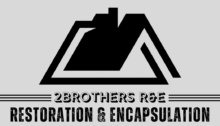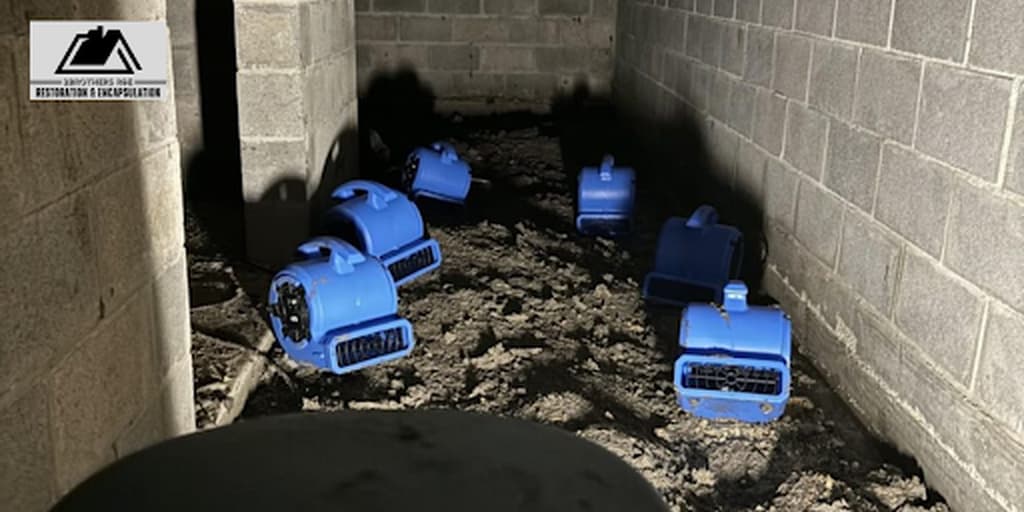Home integrity is something most of us take for granted, but behind a well-maintained property is a careful balance of structural health and environmental safety. Among the crucial factors that contribute to this balance are foundation drainage systems and mold inspection services. At 2Brothers R&E, our goal is to inform homeowners about the importance of addressing these areas proactively, ensuring the longevity and safety of their properties. This guide delves into the importance of these services, explaining why they are vital to maintaining a sound foundation and a healthy indoor environment.
The Purpose of Foundation Drainage Systems
A foundation drainage system is designed to keep excess water away from a home’s foundation, preventing water from seeping into the basement or crawlspace and causing issues like erosion, mold growth, and even structural damage. Standing water near the foundation creates hydrostatic pressure, which forces water through cracks and gaps, jeopardizing the foundation’s integrity. A professionally designed drainage system channels water safely away from the foundation, reducing potential risks.
Foundation drainage systems work in various configurations—such as French drains, exterior and interior drainage systems, and sump pumps—each of which offers a unique solution depending on the property’s specific needs. Proper drainage is especially crucial in regions with heavy rainfall or poor soil drainage, as these conditions significantly increase the risk of water-related damage to foundations.
The Role of Mold Inspection Services
When moisture invades a home’s foundation, it often leads to mold growth, posing serious health hazards. Mold spores spread quickly, creating poor indoor air quality, aggravating respiratory conditions, and potentially causing long-term health issues for residents. Here is where mold inspection services become essential.
Our mold inspection process goes beyond surface-level assessments. Using specialized tools and techniques, our inspectors detect hidden mold, locate moisture sources, and analyze air quality to determine mold spore concentration. This comprehensive inspection allows us to identify problem areas before they escalate, guiding homeowners through the necessary steps to eradicate mold effectively.
How Foundation Drainage and Mold Inspection Work Together
A robust drainage system protects a home from water intrusion, which in turn minimizes the conditions that allow mold to thrive. The synergy between foundation drainage systems and mold inspection services is significant: while drainage prevents moisture buildup, mold inspections ensure early detection of any mold that may appear, addressing it before it spreads.
For many homeowners, discovering mold in the basement or crawlspace is a common occurrence. In these cases, an inspection by trained professionals identifies the extent of the mold problem, while a drainage system corrects the root cause. This two-step approach ensures not only the removal of existing mold but also a drastic reduction in the likelihood of future mold growth.
Benefits of Investing in Professional Services
Many homeowners attempt DIY solutions for drainage and mold issues, often unaware that these quick fixes may mask the real problem rather than solve it. At 2Brothers R&E, we understand the importance of tailored solutions that address each property’s unique challenges, backed by professional expertise and industry-grade equipment. Here are key benefits of professional foundation drainage systems and mold inspection services:
- Customized Solutions: Every home is unique, and so are its drainage and mold inspection needs. Our professionals assess each property individually, offering solutions that meet specific requirements.
- Long-Term Results: DIY fixes may offer temporary relief, but professional services deliver long-lasting results. A robust drainage system and thorough mold inspection provide stability and security over the years.
- Health and Safety: Mold spores can lead to allergies and respiratory issues. Professional inspections ensure early detection, safeguarding the health of everyone in the household.
- Property Value: Effective drainage and mold control increase the value of your home, demonstrating to potential buyers that the property has been well-maintained.
FAQs About Foundation Drainage and Mold Inspection
1. Why is foundation drainage important?
Foundation drainage systems prevent water from accumulating near the foundation, reducing the risk of erosion, basement flooding, and structural damage. This is especially vital in areas prone to heavy rain or poor soil drainage.
2. How often should I have a mold inspection?
It’s advisable to schedule mold inspections annually or whenever there are signs of moisture problems. Regular inspections can catch mold issues early before they become serious health hazards.
3. Can I install a drainage system on my own?
While some aspects of drainage may seem manageable, professional installation ensures effectiveness and durability. Expertly designed systems address specific property needs, providing better long-term results.
4. What types of drainage systems are available?
Common options include French drains, exterior waterproofing, and sump pumps. Each system serves a unique purpose, and an assessment by a professional can determine the best solution for your property.
5. How do mold inspections work?
Mold inspections involve a detailed evaluation of moisture-prone areas, air quality testing, and locating hidden mold. The results allow experts to suggest necessary steps to mitigate and prevent mold growth.
Takeaway
Investing in professional foundation drainage systems and mold inspection services is a proactive step in home maintenance, offering peace of mind and long-term benefits. From protecting structural integrity to ensuring healthy indoor air quality, these services play an essential role in maintaining a safe and stable home. By choosing expert solutions, homeowners can rest assured that their property is well-equipped to handle environmental challenges, enhancing both its longevity and market value.

